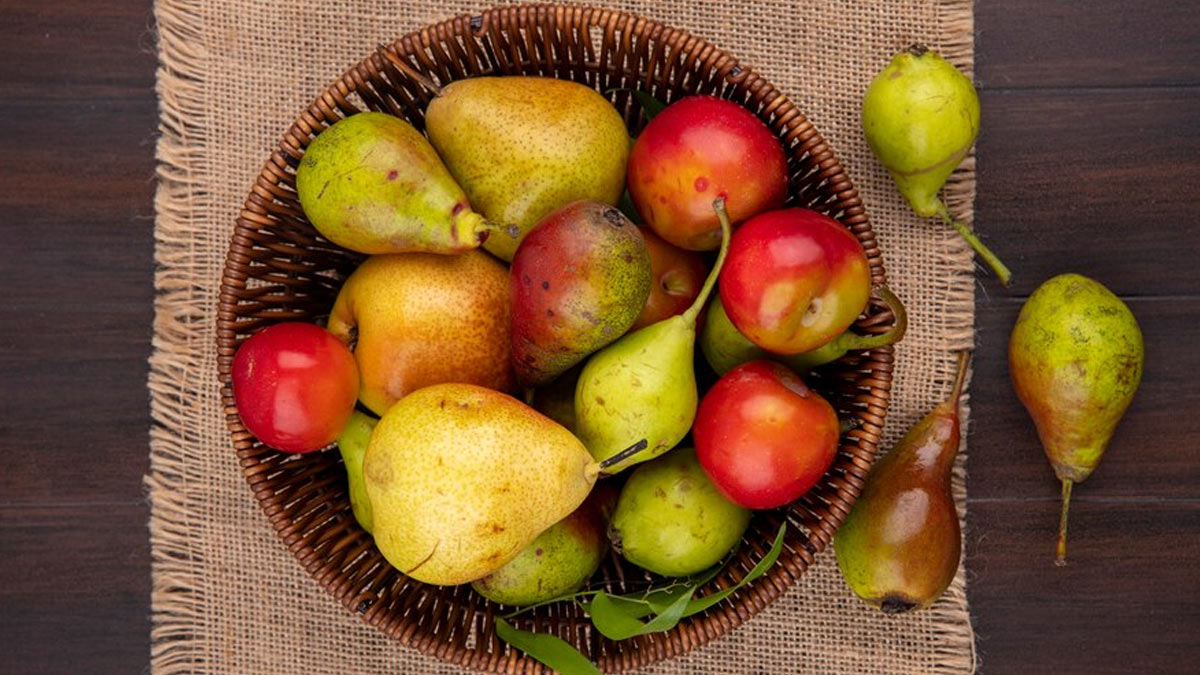
Fever is a common symptom of various illnesses, ranging from the common cold to more severe infections. During periods of illness, the body's immune system is working overtime to fight off pathogens, and proper nutrition is extremely essential during this time to help your body recover.
Table of Content:-
Fruits to Avoid Before a Fever
While fruits are generally considered a healthy part of a balanced diet, there are certain considerations to keep in mind when consuming them during a fever.
Citrus Fruits
According to a study published in the journal Natural Products and Bioprospecting, citrus fruits contain flavonoids and Vitamin C which help boost the immune system. However, citrus fruits like oranges, lemons, and grapefruits can be acidic and potentially irritating to the throat, especially if it's already sore due to illness. Consuming citrus fruits before a fever may exacerbate discomfort and inflammation in the throat.

High-Fibre Fruits
A study published in the Journal of Nutrition found that fibrous fruits like apples, pears, and berries can be difficult to digest, particularly if you are experiencing gastrointestinal symptoms accompanying a fever, such as nausea or diarrhoea. These fruits may worsen digestive discomfort and contribute to further dehydration.
Exotic or Unfamiliar Fruits
Introducing new or exotic fruits into the diet before a fever may not be advisable, as some of us may have unknown allergies or sensitivities to certain fruits. It's best to stick to familiar and well-tolerated options during illness.
Foods to Avoid After a Fever
The story doesn’t end after your body temperature is back to normal. Your body still needs extra care and support to recover from the weakness your body suffered due to a fever. Avoid these foods after your fever has subsided:
Spicy and Irritating Foods
After a fever, the throat and digestive system may be sensitive and inflamed. Therefore, it's best to avoid spicy foods, as they can further irritate the throat and exacerbate discomfort. Additionally, highly acidic foods like tomatoes and vinegar-based dressings may also irritate the digestive tract and should be consumed with caution.
Also Read: Viral Fever: What Foods To Eat And Avoid To Reduce The Risk Of Illness

Processed and Sugary Foods
While it may be tempting to indulge in comfort foods like cookies, candies, or sugary beverages after a fever, these items can hurt immune function and overall health, according to a study published in Nutrition Journal. Excessive sugar consumption can suppress immune function and promote inflammation, hindering the body's recovery process. Instead, opt for natural sources of sweetness like fresh fruits to satisfy cravings without compromising health.
Fatty and Heavy Foods
After a fever, the body may still be recovering and adjusting to normal functioning. Consuming heavy or fatty foods, such as fried dishes, rich desserts, or greasy snacks, can place additional strain on the digestive system and may lead to discomfort or indigestion. Stick to lighter, nutrient-dense options that are easier for the body to process and digest.
Caffeinated Drinks
While a cup of coffee or tea may provide a temporary energy boost, excessive caffeine consumption can contribute to dehydration and disrupt sleep, both of which are detrimental to recovery after a fever. Instead of relying on caffeine for energy, focus on staying hydrated with water and herbal teas, which can also provide soothing benefits.
Also Read: Dengue Fever Recovery Diet: 5 Foods For Faster Recovery
By avoiding these foods and beverages during and post fever, you can support your body's recovery process. Prioritise nourishing, hydrating, and easily digestible foods to help replenish nutrients, support immune function, and restore energy levels. If you have any concerns or underlying health conditions, consult with a healthcare professional for personalised guidance on post-fever nutrition. Remember to listen to your body's cues and give it the care and nourishment it needs to bounce back from illness effectively.
Also watch this video
How we keep this article up to date:
We work with experts and keep a close eye on the latest in health and wellness. Whenever there is a new research or helpful information, we update our articles with accurate and useful advice.
Current Version